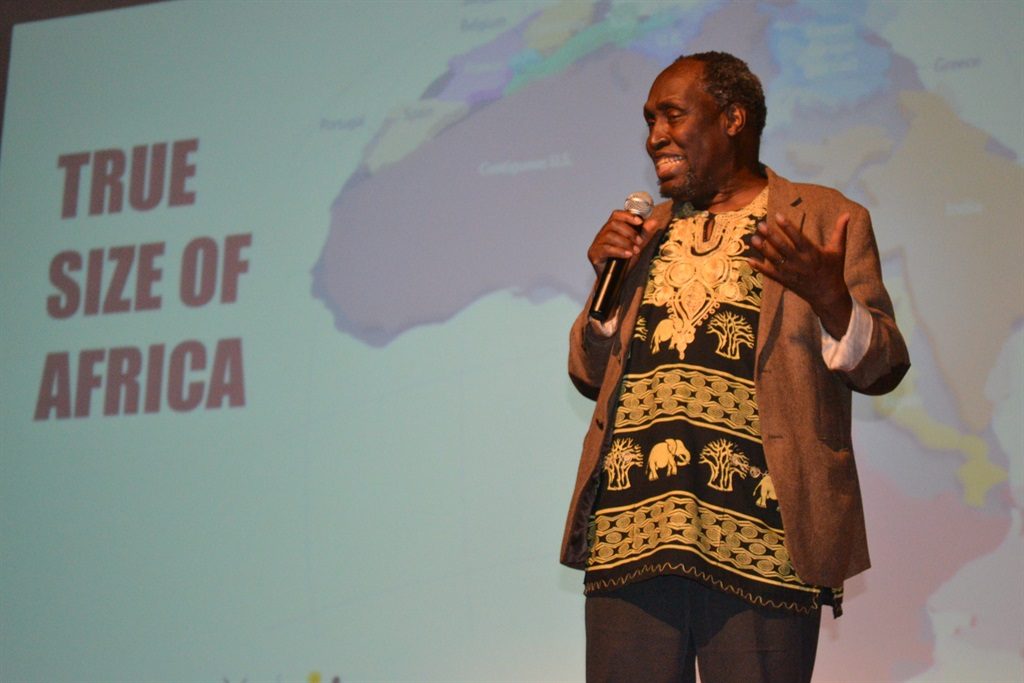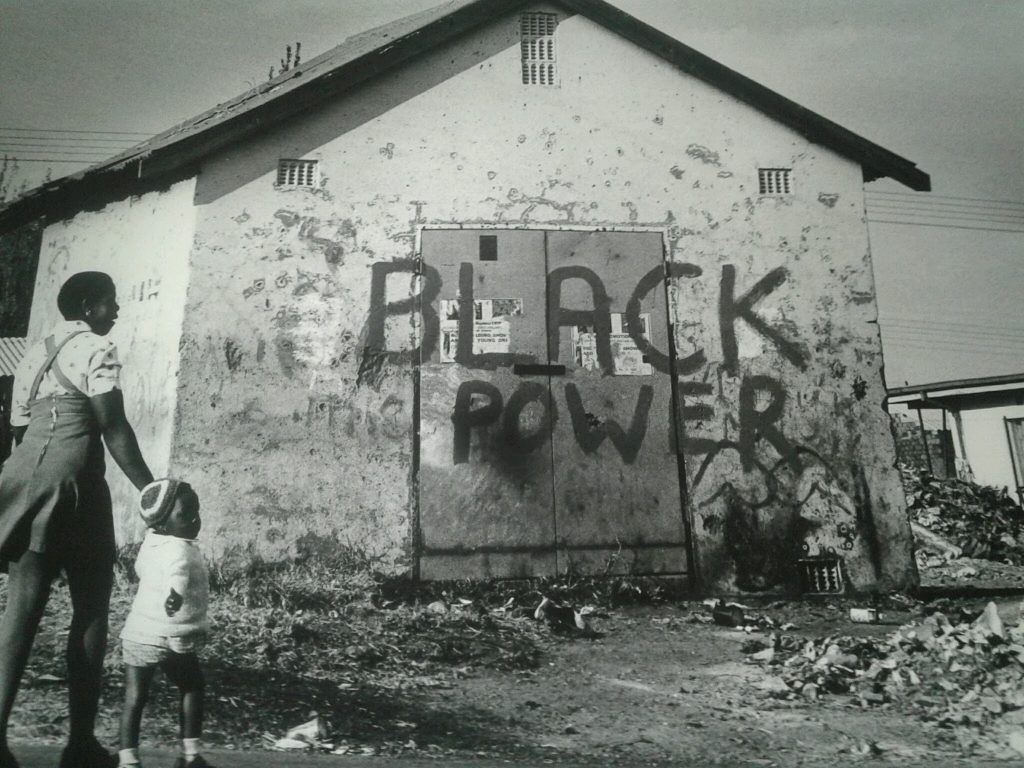On 2 March 2017, the University of the Witwatersrand (Wits) hosted Kenyan critically acclaimed author, Mwalimu Ngugi Wa Thiong’o for an inaugural lecture titled ‘Secure the base, Decolonise the Mind’. The lecture, held at Wits’ Great Hall, in Robert Sobukwe Block, was packed to the venue’s full capacity, with some attendants having to sit outside the venue and watch the event as it aired live across various television stations. As the audience waited for the lecture to begin, #FeesMustFall activist students sang songs with a feminist theme and inclusive of the broader struggle.
Wa Thiong’o opened his talk with a reference to the psychology of maps: how maps of yester-year depicted the European part of the Eurasian landmass as being proportionally larger than what it really is in reality. By contrast, the landmass of Africa was proportionally shrunk. He went on to show an inconsistency invariably meant to debase African peoples, referring to them as ‘tribes’ or ‘tribesmen’ and European groups being nations, despite cases where heterogenous groups were under the same state. Despite there being more numbers in an African ethnic group, or group of the same language speakers, they would still be referred to as tribesmen. What this means is that African monarchs can only then be referred to as chiefs, chieftainesses, or paramount chiefs. He also paid great tribute to the recently departed fiction wirter, Peter Abrahams, who died on 18 January 2017, aged 97, in his home in Kingston, Jamaica.
Peter Henry Abrahams was a South African author who was born on 3 March 1919. He came to prominence as one of the most prolific black prose writers and in 1946 he released the great novel ‘Mine Boy’, which depicted the incredible dehumanisation and racist abuses suffered by the African people at the hands of the colonial and apartheid system of South Africa. Ngugi revealed how much the late great writer Nigerian Chinua Achebe was touched by Abrahams.
In noting the decolonisation discourse that has been kept in the public sphere by activist students of #FeesMustFall, Ngugi argued that the envisaged curriculae should look to the work of late former Ghanaian prime minister Kwame Nkrumah. Nkrumah envisioned Africa as a dominant industrial power given its mineral riches, but African states have to work together to harvest such potential. As a linguistic expert himself, Wa Thiong’o encouraged the study of African history, culture and language for a pro-African launch into its own modernity.
It was also interesting to see #FeesMustFall activists interacting with the lecture offered by Wa Thiong’o since there is a tendency to reject Marxism and class theory in general by Fallists. A significant number of activists applauded the author of acclaimed work ‘Decolonising The Mind’, and seemed to agree with him despite his use of class analysis to chart colonialisation, imperialism and the suffering of the African peoples at the hands of European people.
As though aware of this potential embarrassment on the part of student activists, Wa Thiong’o lamented the invisibility of distinctly African scholarship since English, Portuguese, French and other non-African languages are the preferred languages of writing to African scholars and academics. Africans use European languages in justice, business, as media of instruction in education, and to maintain power – citizens are rendered “linguistically deaf and mute by government policy.” This continues the practice of imperialists who put their languages at the centre of the colonisation process which itself began as mercentile capitalism and put Black people as the central target of its accumulation intentions. Wa Thiong’o stated how the English language was standardised in about 1869 for purposes that included easier teaching to the colonised.
This process has been kept by African intellectuals who prioritise only self-preservation and agree with whoever butters their bread. Usually, when the African language is spoken in a space reserved only for European speech, intellectuals would provide their expertise, arguing that the use of an “African language [in the space] will break the nation”.



